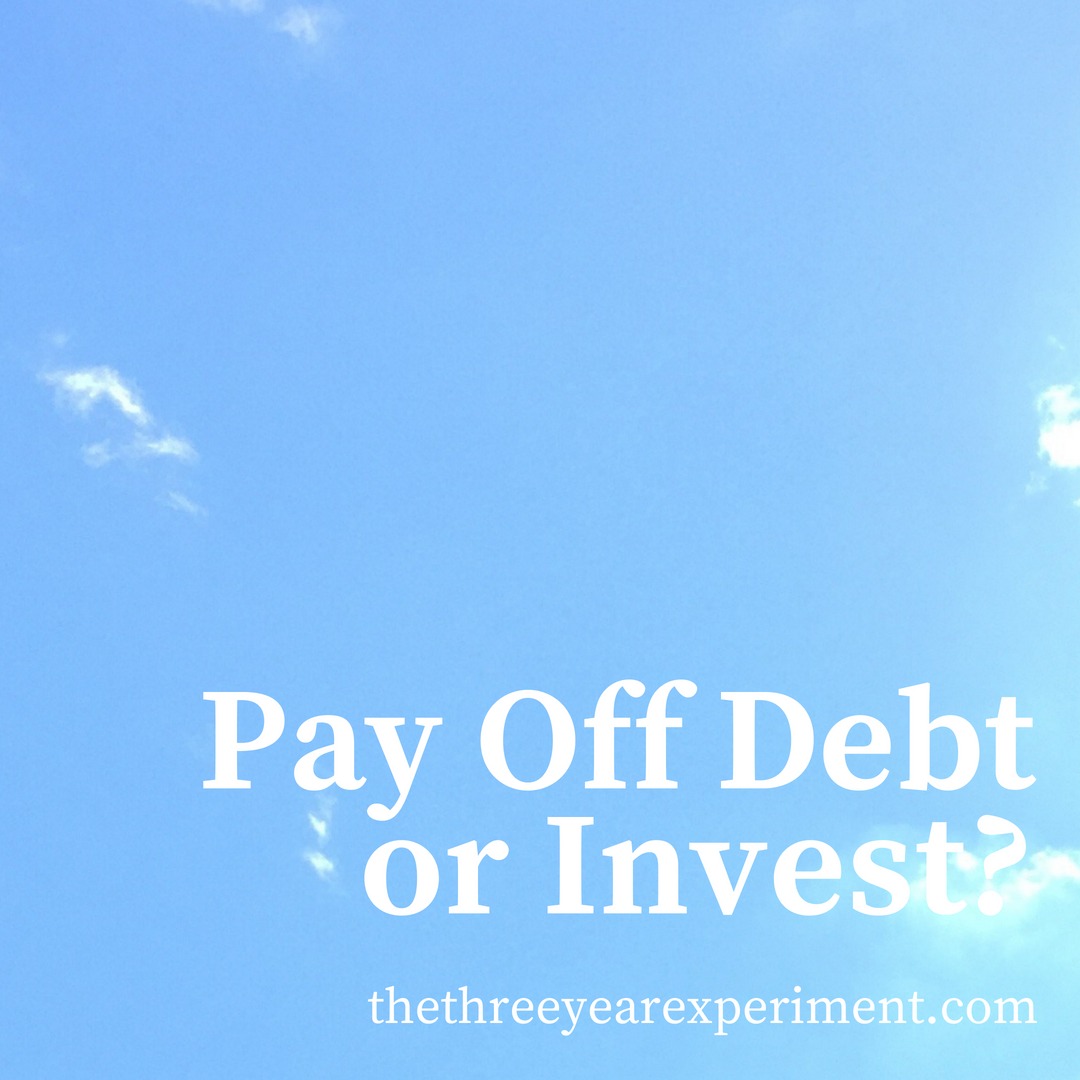There’s a big debate in the personal finance community over whether it’s best to pay off your debt, or keep low interest debt (like a mortgage) and invest more.
After all, with low interest rates, you can likely earn more over time investing more of your money in the stock market and keeping low interest debt around. However, while the math may support keeping debt around, it certainly doesn’t account for the behavioral economics side of things. After all, as smart and logical as we’d like to think we all are, it’s all too easy to prefer a new car or vacation over disciplined investing, especially if a partner is pushing for those things.
And what about the feeling of being debt free? Being indebted to no one? If you carry a mortgage, you have that debt burden (and responsibility) over your head.
Moose of MSOLife and I weigh in on the debate today over at Rockstar Finance. You may remember Moose from his Location Independent, International Jobs interview a few months back. He and I have very different views on the topic, so we decided to face off for Rockstar Finance’s Point/Counterpoint Series.
Here’s the first part of our “friendly chat”:
Invest or Pay Off Debt?
Laurie: Why You Should Pay Off Your Debt, Every Time
Pay off your debt, or invest the difference? There are so many arguments on both sides. In the end, the vast majority of people are better off thinking about their behavior. Here’s why I’m convinced that you should pay off all your debt, even your mortgage, as quickly as you can.

Moose: Consider Investing Instead of Paying Down Low-Interest Rate Debt
Automation makes hedging against your worst impulses easier than ever. The math behind compounding interest makes capital efficiency paramount, especially if you’re 39 or younger. I advocate investing over paying down low-interest rate debt.

The Discount Rate
Laurie (For):
We’ve all heard it. Sure, mathematically, it makes sense to keep your mortgage at 4.5% and invest the money you’d otherwise spend paying it off in the stock market. There’s no arguing with the mathematics. Here’s the problem with that argument: there are human beings on the other side. As much as we’d like to think we’ll take the money we’d otherwise use to pay off our mortgage early and invest it in the stock market, the truth is, many of us might, despite the best intentions, fritter it away on eating out and “emergency” home remodels. Once we’ve paid our debts off, they’re paid. We dramatically decrease our cost of living and stop paying interest, a massive destroyer of wealth.
Moose (Against):
I understand that maintaining the level of discipline to consistently invest instead of paying off debt is difficult. That’s why I automate the process. With automation, you don’t even see the “extra” money, and it goes to work for you without any additional time and effort required from you. Once you automate your saving and investing, you don’t have to worry about wasting the money you could otherwise use to pay down debt.
Even if the Investment Hurdle Rate (“IHR”) that dictates that I don’t need to pay off a debt early, I typically kick in a little extra to the payment every month anyway. I still invest the bulk of my free cash flow, but I like to both invest and accelerate debt payments along the way. This way you get the benefits of both.
…
Read the rest (do we pull off the gloves or keep it civil?) here.
Have a terrific weekend!! And you may want to peak over here to see what’s shaking on Monday. I have some big news! If you’re a newsletter subscriber you already know!!




This debate definitely is the ultimate 50/50 in the personal finance world!
There are great arguments on both sides, but I definitely fall in line with your view on it. In life in general, human beings can’t change their outcomes unless they change their daily habits. By becoming debt-free, you gain a different type of perspective on money. It is an empowering feeling to not owe $$$ to anybody. When you control where all your money goes, you sit in the drivers seat for the rest of your life.
Thanks for sharing this!
Thanks Sean! I’m obviously pretty partial to paying off debt myself. But I also know myself, and I have way less self-discipline than someone like Moose. 🙂 We’re really excited about reaching debt freedom (just the mortgage to go!) and not owe $$ to anyone, like you said!
I never borrow money. I’m just afraid I won’t . ))) I learned some interesting facts here. Thank you for the information. I will come to this site. )))
This is the biggest debate and one that brings the emotions out of people in this online, personal finance community. There may not be a right or wrong answer to it. But I agree with the point that it takes discipline if you plan to invest rather than paydown your debt. For me, it is easier because I am stubborn like that. But if you doubt that you can save the money in a pool and do a one for one investment with every dollar you would use to paydown your debt, I would consider paying down your debt. Thanks for sharing the debate with me today.
Bert
Thanks for reading and weighing in, Bert! It’s been fun to weigh in and hear how other people feel.
I side with Moose but only because I’m a greedy brat. But I can say it really depends on your 1) dependents and 2) job stability 3) and how much in accessible savings. Some people set aside a lot of money just in case.
Also you have gobs of self discipline! 🙂